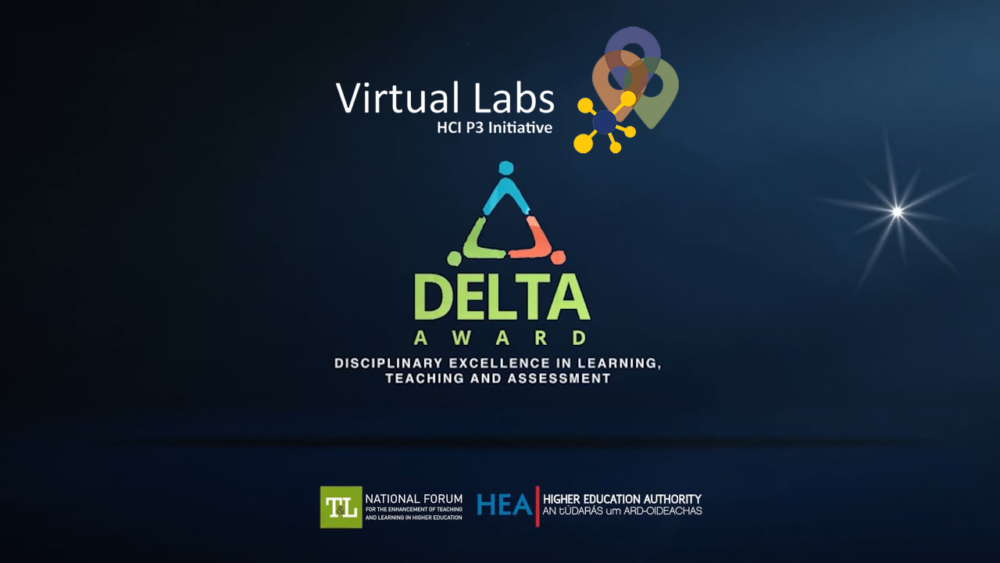
Find information on how to make a Protected Disclosure under the external procedures in place in the HEA.
By Maura O'Shea
Posted: 13 May, 2024

The Virtual Labs project, a collaborative initiative among five higher education institutions — including Maynooth University (Lead), Technological University of the Shannon, Dublin City University, Dundalk Institute of Technology, and University College Cork — has been honoured with the Disciplinary Excellence in Learning, Teaching and Assessment (DELTA) Award. This national award recognises their significant contributions to bio/chemical sciences education aimed at enhancing blended teaching and learning experiences and is funded through the Higher Education Authority’s HCI Pillar 3 programme.
Initiated in 2020, Virtual Labs has focused on creating a lab-based curriculum that integrates transversal skills and is informed by feedback from a broad spectrum of stakeholders including students, staff, and robust partnerships with international edtech firms and regional enterprises from critical sectors including Pharma/Biopharma, Semiconductor, and Food & Drink. Their work is designed to meet the demands of modern students embarking on a future career in STEM and enhancing engagement across various educational levels including level 7, 8, and level 9 programmes.
Dr Alan Wall, Chief Executive Officer at the Higher Education Authority (HEA), praised the team’s achievements: “Their success in enhancing teaching and learning within the bio/chemical sciences is inspiring and deserves this national recognition.”
“By embracing a truly collaborative approach, the Virtual Labs team exemplifies what can be achieved when institutions work together towards a common goal. Their work aligns with our goals at the HEA, where we aim to bridge the gap between academic learning and industry demands.”
Mr Colin Lowry, Senior Manager of Teaching & Learning, Enhancement and Digital Innovation, also highlighted the significance of their achievements: “It’s impressive to see how the Virtual Labs team has transformed educational practices across multiple institutions. This team’s ability to drive change and implement impactful teaching strategies across multiple institutions is truly commendable and serves as a role model for similar collaborations.”
“Their work goes beyond traditional boundaries and integrates the latest technologies and collaborative methodologies that engage students on a deeper level and prepare them for a successful career in STEM.”
The team’s influential work has been recognised with various national and international awards, and they continue to contribute actively to the academic community through extensive publications and presentations. As the HCI-funded initiative nears its 2025 conclusion, the Virtual Labs team is committed to maintaining the momentum and continuing their transformative impact. They aim to establish an enduring framework that will support sustained success and further innovation in teaching and learning within and beyond their disciplines.
The DELTA Award, presented annually by the HEA’s National Forum for the Enhancement of Teaching and Learning in Higher Education, recognises outstanding contributions to teaching and learning enhancement. The Virtual Labs achievement will be celebrated at an awards ceremony later this month.
The HEA and National Forum extend their thanks to the review panel for their insightful evaluations and contributions, which included Dr Suzanne Fergus (University of Hertfordshire), Bryan O’Mahony (Union of Students in Ireland), Dr Leigh Graves Wolf (University College Dublin), Dr Roisin Cahalan (University of Limerick) and Patrick Flynn (Technological University Dublin). In congratulating the Virtual Labs team, we encourage other discipline groups who are eligible to apply for the DELTA Award. The next deadline for expressions of interest in the DELTA Awards is 03 July 2024. Visit teachingandlearning.ie/awards/delta-award/ for more details.